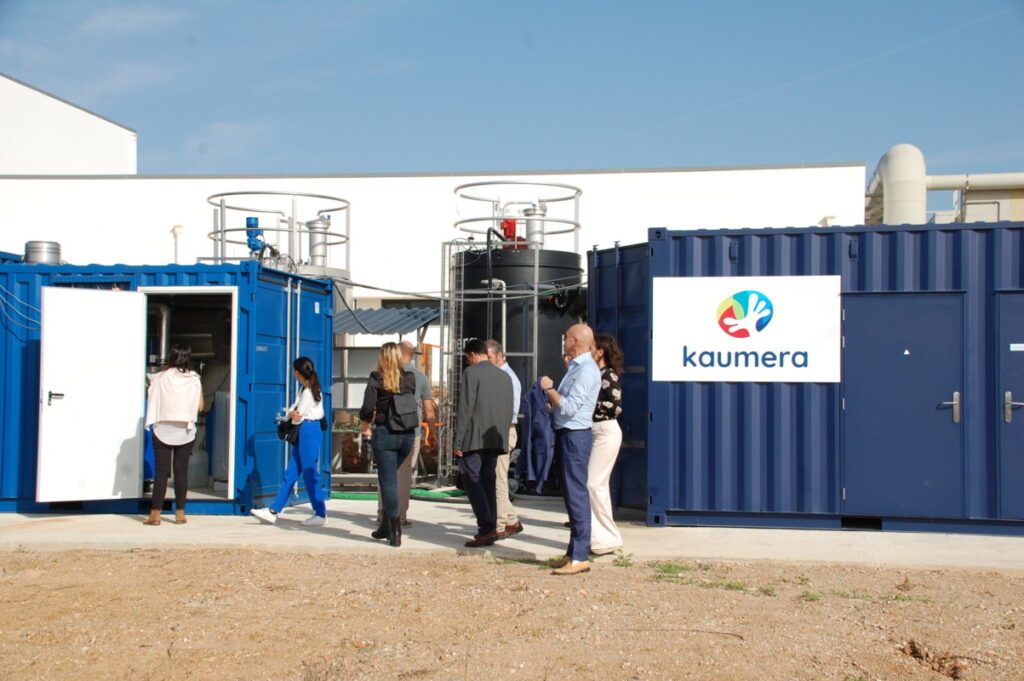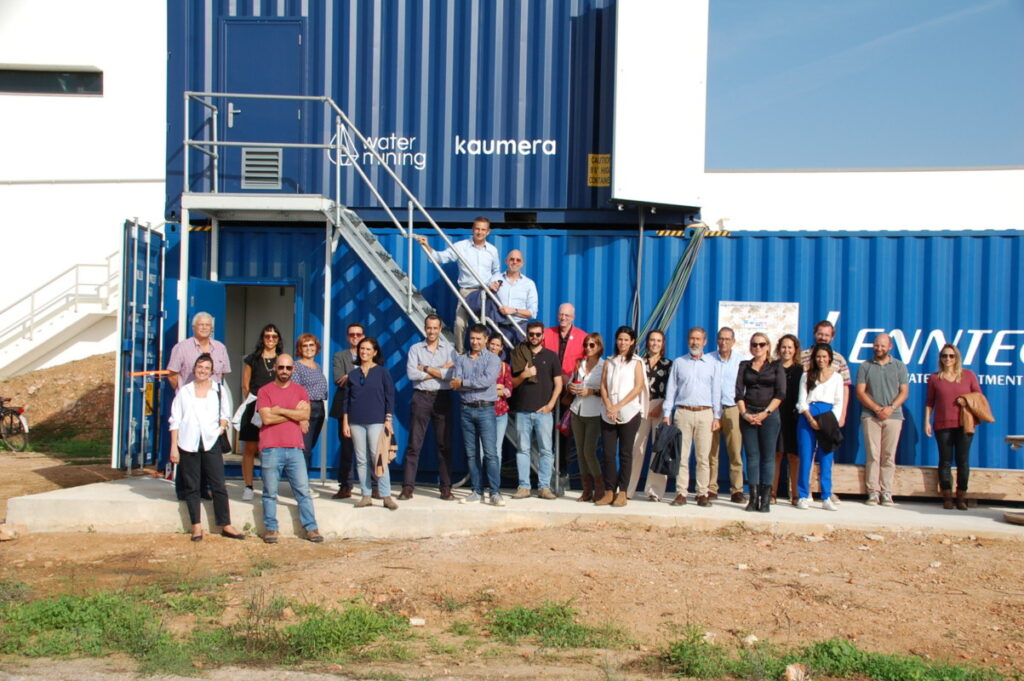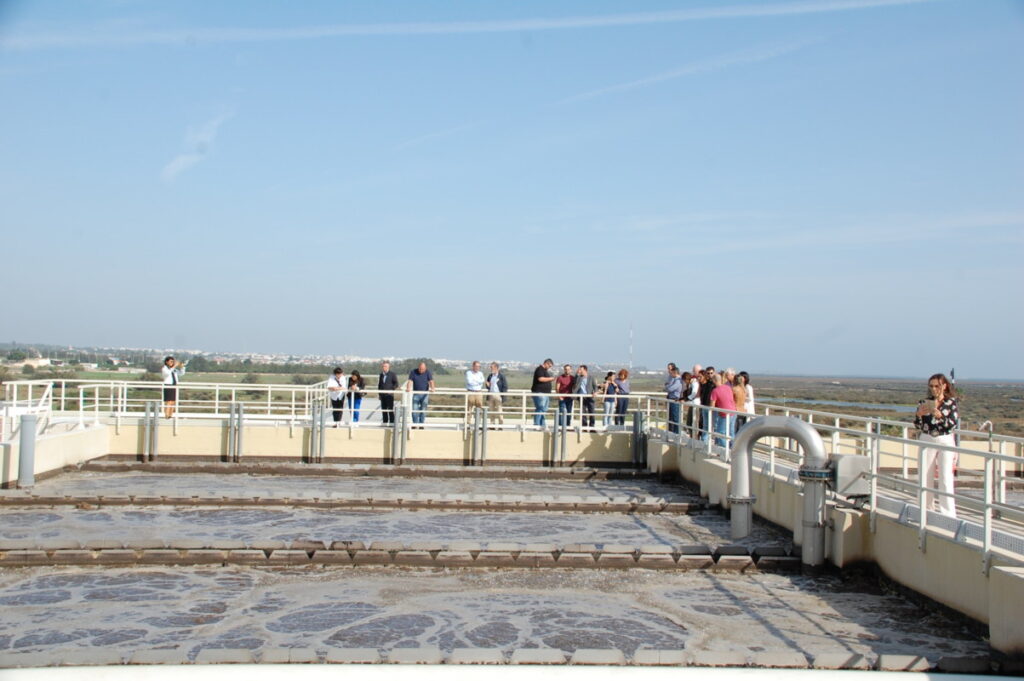Águas do Algarve inaugurated an extraction unit for Kaumera, a raw material that can be used, among other things, as a biologically-based fertilizer, in its Wastewater Treatment Plant (WWTP) in Faro/Olhão, on the 28th of October.
This is, according to the multi-municipal water supply and waste treatment company in the Algarve, «a versatile, biologically-based raw material that is extracted from wastewater, more specifically from granular aerobic sludge systems».
This biopolymer can be used as a fertilizer and “is an excellent substitute for petrochemical products”.
Still in terms of its use in the Algarve agricultural sector, Kaumera is also interesting for its «water absorption capacity».
In practice, what was inaugurated at the WWTP Faro/Olhão was a Kaumera Mobile Extraction Installation (KEI), a technology that was developed in the Netherlands, under the European project “Water Mining”, of which Águas do Algarve is one of the partners.
In June of this year, the first mobile installation for the extraction of Kaumera biopolymer (KEI) from granular aerobic sludge from the NEREDA treatment system came into operation at the ETAR in Utrecht, the Netherlands.
This unit was created to carry out 'international tests for the extraction of the biopolymer, taking into account local conditions. After three months of successful operation, the mobile KEI was dismantled and transported to the WWTP in Faro/Olhão, where he arrived in early September».
Now, after being assembled at the Algarve WWTP, the KEI mobile unit will be operated by the Technical University of Delft, with the support of Águas do Algarve.

«In the WWTP of Faro/Olhão tests are being carried out with the KEI unit that will allow comparing the results with those obtained in Utrecht. This analysis is important, taking into account that the installations have different climates and different characteristics of the wastewater, such as, for example, inflow of salt water to the drainage system of the WWTP of Faro/Olhão», describes the Algarve company.
"Possible applications of the Kaumera biopolymer obtained in Faro/Olhão compared to that produced in the Netherlands. In this sense, the University of the Algarve collaborates, specifically at the level of the Master's course of the Urban Water Cycle, in the identification of Kaumera applications, which reveal a special interest in the Algarve region», namely in agriculture. .
There are currently two production sites for the Kaumera biopolymer, in Zutphen and Epe, in the Netherlands, “their interest has been growing since the launch date in 2019”.
The various aspects of the Kaumera biopolymer were initially developed through a partnership between Dutch management entities (Waterschap Vallei en Veluwe, Waterschap Rijn en IJssel), the R&D sector (Stichting Toegepast Onderzoek Waterbeheer, STOWA, and the Technical University of Delft) and the business fabric ( Royal HaskoningDHV; Chaincraft and Koppert).
As for the multidisciplinary research project “Water Mining”, it is funded by the EU, through the Horizon 2020 programme, focuses on innovative and circular solutions for water management and is led by the Technical University of Delft.
In this context, six pilot-scale installations will be developed in Cyprus, Spain, Portugal, Italy and the Netherlands, in a work that involves 38 international partners - institutional, governmental, industry and science and technology -, through which it is expected to be able to "develop of innovative businesses to, among other things, enhance the recovery of by-products from domestic and industrial effluents».
In activities related to the Kaumera biopolymer, the main partners of the “Water Mining” project are Águas do Algarve, the Technical University of Delft, Royal HaskoningDHV, Wetsus and Lenntech ACCIONA.




















Comments